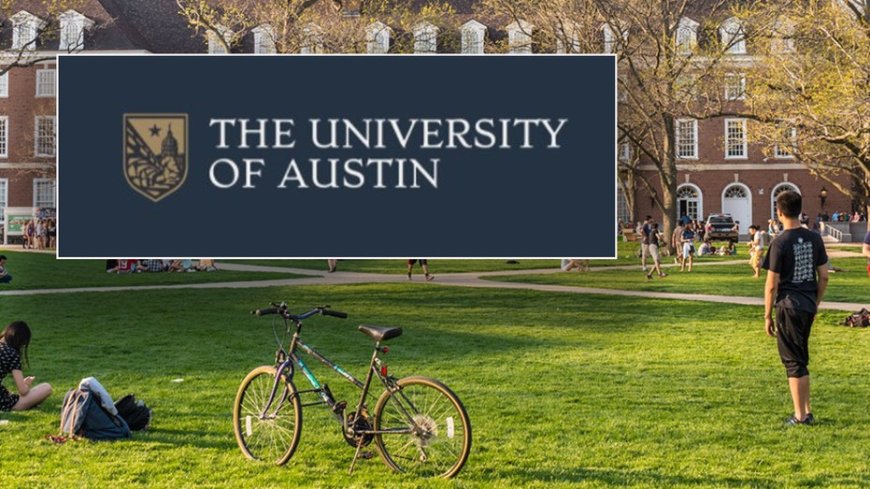Texas 'free speech' university's admissions process shuns the DEI blueprint: 'Interested in the mind'
CBS News' "60 Minutes" looked into the MEI (merit, excellence and intelligence) approach to admissions at the University of Austin, whose leaders insist it offers diversity of thought.

At this Texas university, getting accepted is "mind" over matter.
The University of Austin (UATX) – founded on free speech principles to push back against "woke" ideology – is shunning diversity, equity and inclusion (DEI) policies for what some call MEI – merit, excellence and intelligence, and it's just another way the school is shaking up higher education.
"We don't take any of that into consideration in admissions," Pano Kanelos, president of the university, told CBS News of race, ethnicity and gender. "The primary thing that we're interested in is the mind."
Merit, excellence and intelligence (MEI) centers on qualifications and abilities, particularly emphasizing the "capacity to think deeply," according to Kanelos.
THE UNIVERSITY OF AUSTIN OFFERS ‘FORBIDDEN COURSES.' WHY ARE STUDENTS PRAISING THEM?
It's an idea that pushes back on increasingly controversial DEI policies that prioritize specific ethnicities, racial backgrounds or other demographics in admissions and hiring processes. Once a staple among many companies and institutions of higher education, the concept appears to be losing steam as some dial back its presence.
The University of Florida, for instance, eliminated all of its DEI positions earlier this year to comply with state law. Universities in Alabama, including the University of Alabama in Tuscaloosa, also dissolved their DEI offices to comply with state law.
Companies are also backtracking from DEI, including retail giant Walmart, who hopped onboard the trend this week after companies like Ford, John Deere, Toyota and others did the same.
Critics of DEI suggest such policies prioritize appearance and basic qualities over credentials or experience. MEI critics have a different concern, however. "60 Minutes" correspondent Jon Wertheim remarked that UATX's student body appeared to not be "particularly diverse" as he discussed the admissions policy with some school founders.
TEXAS UNIVERSITY CLEARS DEI OFFICES, LAYS OFF EMPLOYEES IN LIGHT OF NEW STATE LAW: REPORT
Diversity looks different at UATX, its founders say.
"We are putting resources into finding talent of an intellectual variety. And if you're interested in diversity, I recommend you look at the social backgrounds of our students, at the family circumstances of our students," British-American historian Niall Ferguson, another member of the university's founding group, responded.
Another of its founders is Bari Weiss, the former New York Times opinion journalist who now runs the independent site The Free Press, which values free speech and debate.
The admissions process – and the school itself – offer a more conservative alternative to the overwhelmingly left-leaning elite universities like Harvard, Yale, Columbia and their public rivals, some of which, like universities in Florida and Alabama, have downsized or entirely dissolved their DEI departments as seasons change.
NEW STUDY FINDS DEI INITIATIVES CREATING ‘HOSTILE ATTRIBUTION BIAS'
Currently, UATX relies on donor generosity to thrive, but the assumption that all donors are conservative business moguls is flawed. In fact, the free speech policy resonates with liberal donor Nadine Strossen, according to the article.
She insists that "punishing expression" does more harm than good. As she replied to a question about "hateful speech" at UATX, she replied: "My concern is to try to eliminate the underlying discriminatory attitudes. You don't do that by punishing expression. You do that through education, through more speech, not less."


























































